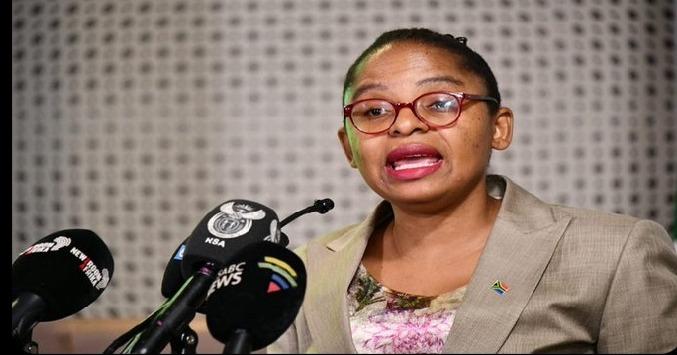Minister in the Presidency Khumbudzo Ntshavheni finds herself at the center of controversy as allegations surface linking her to a R2.5 million tender awarded during her time as municipal manager of Ba-Phalaborwa Municipality in Limpopo. Calls for President Cyril Ramaphosa to address the matter are growing louder, with opposition parties, civil society groups, and political analysts urging decisive action to uphold governance integrity.
The allegations, stemming from a report detailing the 2013 tender, have raised serious concerns about potential conflicts of interest and corruption. Critics argue that Ntshavheni’s continued role in Cabinet is untenable while these claims remain unresolved, particularly as South Africa battles the lingering effects of state capture and public distrust in government institutions.
Ntshavheni, who has served as Minister in the Presidency since 2019, has denied any wrongdoing, maintaining that all procurement processes during her tenure were above board. Despite her assertions, calls for accountability persist, with many questioning whether her presence in Ramaphosa’s Cabinet aligns with his administration’s anti-corruption stance.
Political analysts view Ramaphosa’s response to this issue as a critical test of his leadership and commitment to rooting out corruption. “The president’s handling of this situation will be closely watched, as it will signal whether he is willing to take action against alleged misconduct within his own administration,” said Professor Lwazi Mkhize, a political commentator.
The president has yet to make a public statement regarding the allegations, but the pressure to act is mounting. Opposition parties have called for an independent investigation, while civil society groups demand transparency and accountability from both Ntshavheni and the presidency.
Observers warn that a failure to address the matter decisively could damage Ramaphosa’s credibility and weaken the public’s trust in the African National Congress (ANC). “This is a defining moment for Ramaphosa’s leadership. Ignoring or delaying action risks undermining his administration’s integrity and his broader fight against corruption,” added Mkhize.
As South Africans await Ramaphosa’s next move, the situation underscores the growing demand for accountability from government officials, particularly in light of the country’s ongoing struggles with corruption and governance challenges. How the president navigates this controversy could shape perceptions of his administration and its commitment to ethical leadership.






















